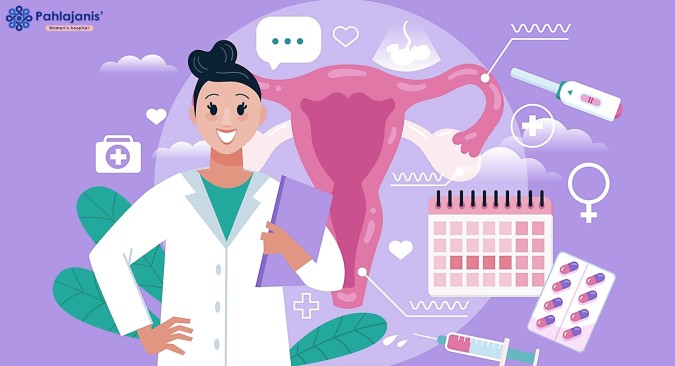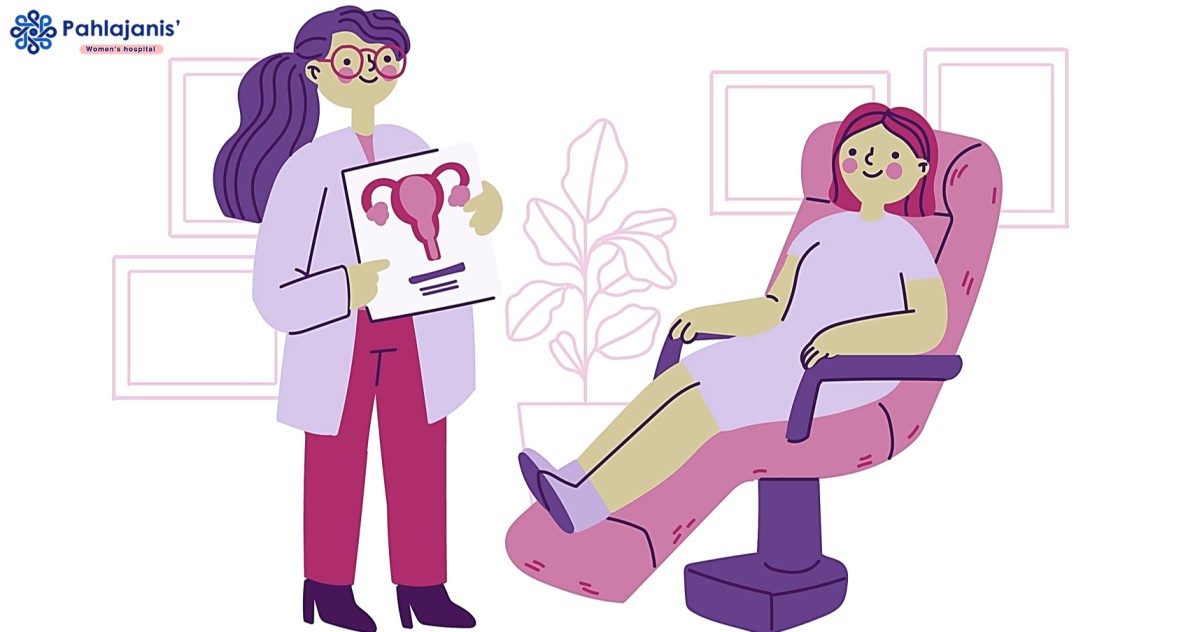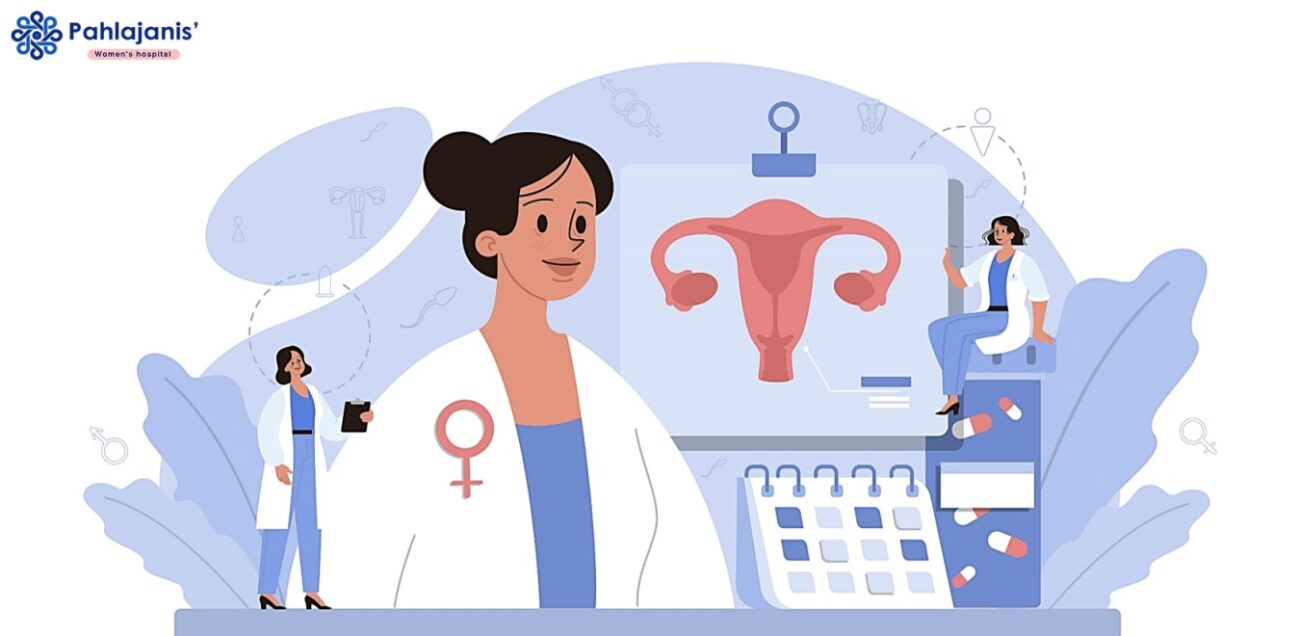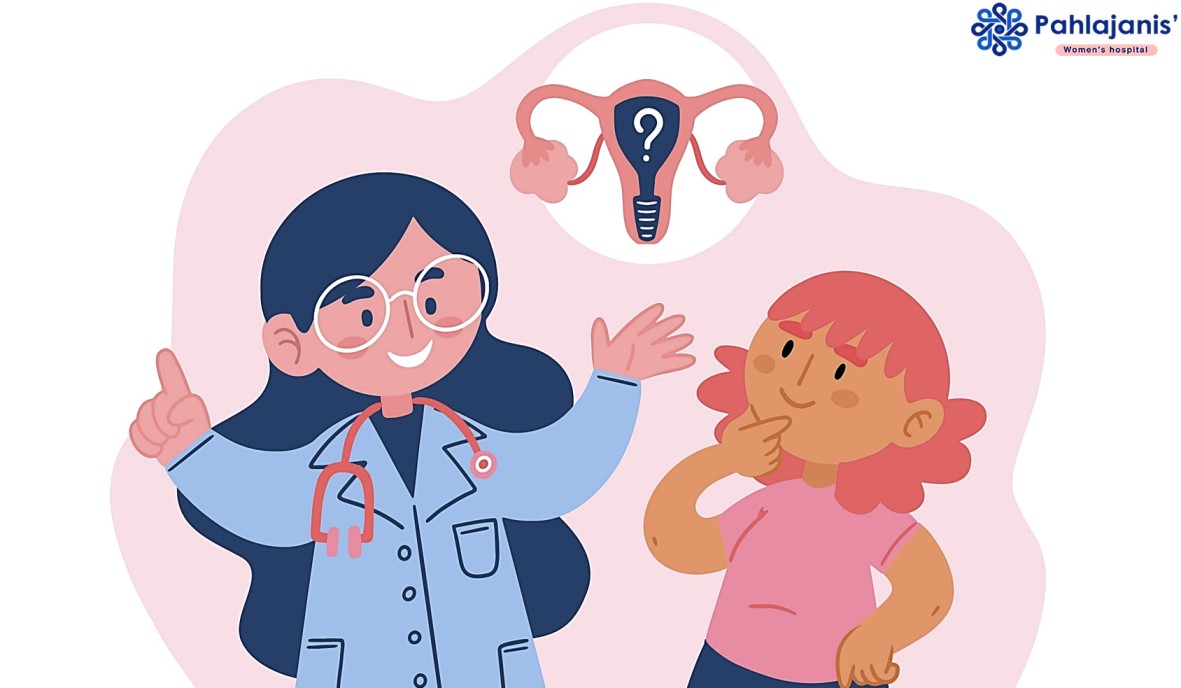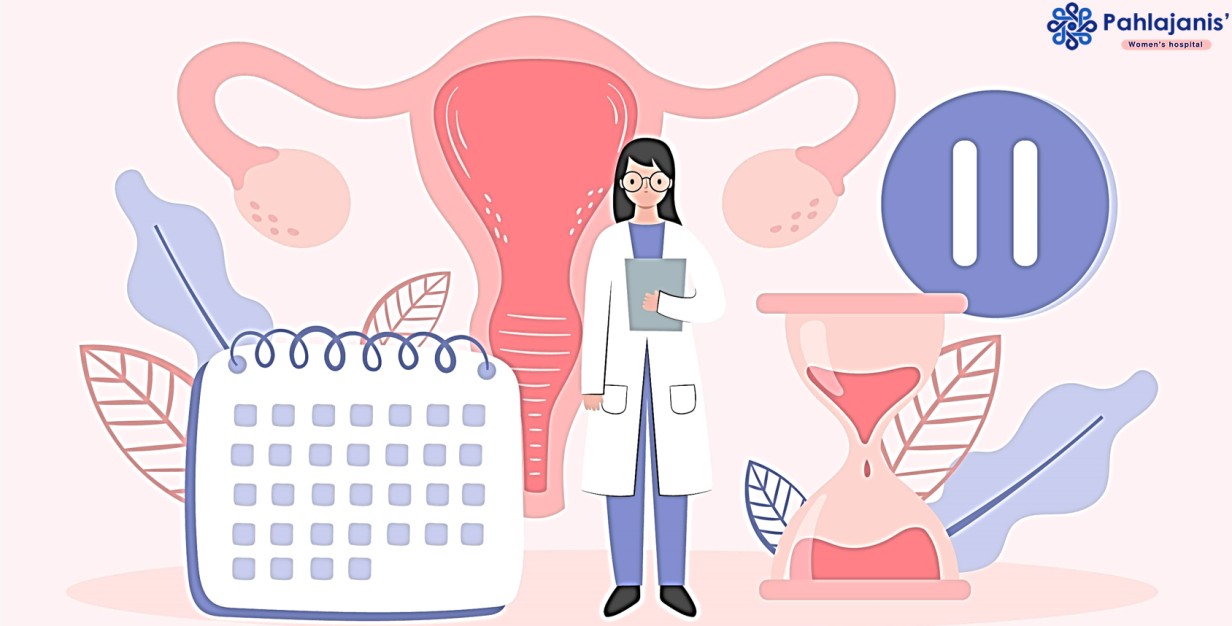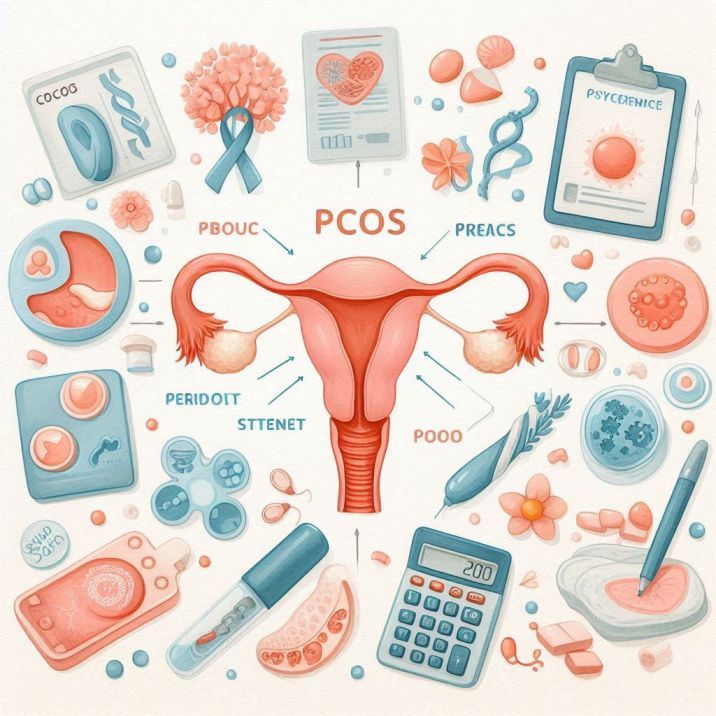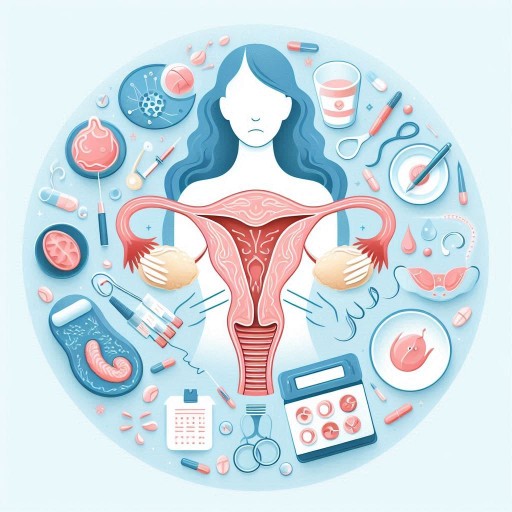Polycystic Ovary Disorder (PCOD) is a common health issue affecting many women worldwide. It is a hormonal disorder that can lead to irregular periods, weight gain, acne, and even fertility problems. If you are struggling with PCOD or irregular periods, you are not alone. Studies show that 1 in 10 women of childbearing age is affected by Polycystic Ovary Disorder, making it one of the most common hormonal disorders among women. The good news is that with the right PCOD treatment, lifestyle changes, and natural remedies, you can regain control of your health. In this blog, we will discuss Polycystic Ovary Disorder symptoms, treatment options, and how to manage irregular periods effectively.
What is PCOD?
PCOD is a condition where a woman’s ovaries produce higher levels of male hormones (androgens) than normal. This hormonal imbalance can cause small cysts to form on the ovaries, leading to irregular periods, weight gain, and other symptoms. According to the World Health Organization (WHO), around 116 million women worldwide (3.4% of the global female population) are affected by Polycystic Ovary Disorder.
Common PCOD Symptoms
- Irregular or missed periods
- Heavy or painful periods
- Weight gain, especially around the waist
- Acne or oily skin
- Hair loss or excessive hair growth on the face and body
- Mood swings and fatigue
If you experience these symptoms, it is important to consult a doctor for proper diagnosis and Polycystic Ovary Disorder treatment.
Explore our guide to PCOD symptoms and treatment options: https://bit.ly/3NxjEBT
Causes of Polycystic Ovary Disorder and Irregular Periods
The exact cause of PCOD is not known, but several factors contribute to this condition:
- Hormonal Imbalance: High levels of androgens and insulin resistance are common in women with PCOD.
- Genetics: PCOD often runs in families. Research shows that if your mother or sister has Polycystic Ovary Disorder , you are 50% more likely to develop it.
- Lifestyle: Poor diet, lack of exercise, and stress can worsen Polycystic Ovary Disorder symptoms.
- Insulin Resistance: Around 70% of women with PCOD have insulin resistance, which makes it harder for their bodies to use insulin effectively.
PCOD Treatment Options
There is no cure for Polycystic Ovary Disorder , but the symptoms can be managed effectively with the right treatment. Here are some common PCOD treatment options:
Medical Treatments
- Birth Control Pills: These can help regulate periods and reduce androgen levels. Studies show that birth control pills can reduce Polycystic Ovary Disorder symptoms in 80% of women.
- Metformin: This medication helps manage insulin resistance. It is particularly effective for women with Polycystic Ovary Disorder who are overweight or obese.
- Fertility Treatments: For women trying to conceive, medications like Clomiphene can help with ovulation. Around 70-80% of women with Polycystic Ovary Disorder who take Clomiphene successfully ovulate.
If you are looking for PCOD treatment in Raipur, consult a trusted gynecologist who can guide you through the best options for your condition.
Natural Remedies for Polycystic Ovary Disorder
Natural remedies can complement medical treatments and help manage PCOD symptoms. Here are some effective natural remedies:
- Apple Cider Vinegar: Helps regulate blood sugar levels. A study published in the Journal of Functional Foods found that apple cider vinegar improved insulin sensitivity in women with Polycystic Ovary Disorder.
- Cinnamon: Improves insulin sensitivity. Research shows that consuming 1.5 grams of cinnamon daily can help regulate menstrual cycles in women with Polycystic Ovary Disorder.
- Spearmint Tea: Reduces androgen levels and improves hormonal balance. A study in Phytotherapy Research found that drinking spearmint tea twice daily for 30 days significantly reduced excess hair growth in women with Polycystic Ovary Disorder.
- Fenugreek Seeds: Helps regulate periods and reduce insulin resistance.
Lifestyle Changes
Lifestyle plays a crucial role in managing Polycystic Ovary Disorder and irregular periods. Here are some tips:
- Eat a Balanced Diet: Include whole grains, lean proteins, and plenty of fruits and vegetables.
- Exercise Regularly: Physical activity helps regulate hormones and improve insulin sensitivity. Studies show that 30 minutes of moderate exercise, 5 days a week, can significantly improve Polycystic Ovary Disorder symptoms.
- Manage Stress: Practice yoga, meditation, or deep breathing exercises to reduce stress.
How to Regulate Periods with PCOD
Irregular periods are one of the most common symptoms of Polycystic Ovary Disorder. Here are some tips to help regulate your menstrual cycle:
Best Foods for PCOD Management
Your diet plays a key role in managing Polycystic Ovary Disorder symptoms. Here are some of the best foods for Polycystic Ovary Disorder management:
- Leafy Greens: Spinach, kale, and broccoli are rich in iron and fiber.
- Whole Grains: Brown rice, oats, and quinoa help regulate blood sugar levels.
- Healthy Fats: Avocados, nuts, and olive oil support hormonal balance.
- Berries: Blueberries, strawberries, and raspberries are rich in antioxidants.
A study published in the Journal of Nutrition and Metabolism found that women with Polycystic Ovary Disorder who followed a low-glycemic diet experienced a 22% improvement in menstrual regularity.
Exercise for PCOD and Irregular Periods
Regular exercise is essential for managing PCOD and regulating periods. Here are some exercises you can try:
- Cardio: Walking, jogging, or cycling for 30 minutes a day can improve insulin sensitivity.
- Strength Training: Lifting weights or doing bodyweight exercises helps build muscle and burn fat.
- Yoga: Poses like the butterfly pose and child’s pose can help regulate hormones and reduce stress.
Research shows that women with Polycystic Ovary Disorder who exercised regularly experienced a 30% reduction in symptoms like irregular periods and weight gain.
Stress and Polycystic Ovary DisorderIrregular Periods
Stress can worsen Polycystic Ovary Disorder symptoms and lead to irregular periods. Studies show that 60% of women with Polycystic Ovary Disorder report high levels of stress, which can disrupt hormonal balance. Here are some ways to manage stress:
- Practice Mindfulness: Spend 10-15 minutes daily meditating or practicing deep breathing.
- Get Enough Sleep: Aim for 7-8 hours of sleep every night.
- Stay Active: Engage in hobbies or activities that make you happy.
Pahlajanis’: Your Partner in PCOD Treatment
If you are looking for reliable PCOD treatment in Raipur, Pahlajanis’ Women’s Hospital is here to help. With a team of experienced gynecologists and state-of-the-art facilities, the hospital offers personalized care for women with Polycystic Ovary Disorder and irregular periods. Whether you need medical treatment, lifestyle guidance, or fertility support, Pahlajanis’ Women’s Hospital provides comprehensive care to help you regain control of your health.
Book an appointment with a trusted Gynecologist in Raipur now: https://bit.ly/4bXhu8m
PCOD and irregular periods can be challenging, but with the right approach, you can manage your symptoms and lead a healthy life. From medical treatments and natural remedies to lifestyle changes, there are many ways to regain control. Remember, early diagnosis and proper Polycystic Ovary Disorder treatment are key to managing this condition effectively. If you are in Raipur, consider consulting Pahlajanis’ Women’s Hospital for expert guidance and support.
By making small changes to your diet, exercise routine, and stress management, you can take charge of your health and live a happier, healthier life. Don’t let Polycystic Ovary Disorder control you—take the first step towards a better tomorrow today!

